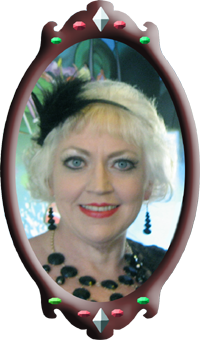WHY FENG SHUI?
Tips on Feng Shui
The position of the rooms and furniture in your home and workplace may have
more to do with the course of your life than you think. Feng Shui philosophies indicate that the way you decorate your space has a huge impact on many aspects of your life.
If your home or work environment are disorganized amid a jumble of haphazardly-placed furniture, chances are your finances, health and emotional well-being will be just as unstable.
Let me show you how to carry out the changes which will bring Feng Shui Harmony
to your home or business.
“Happiness, relationships, health, and material prosperity may all be enhanced,
when the ancient Chinese art of Feng Shui is applied in the proper spirit.”
More About Feng Shui
Feng Shui is a method of using the laws of nature, and our own need to balance
with nature, to achieve the harmony that results in better outcomes in our
lives, where health, relationships, happiness, and material prosperity can all
be greatly enhanced.
Consultants may use differing techniques to guide them.
The ancient Chinese system, used by consultants for balancing opposing energies
in the environment, known by us as “FENG SHUI”, uses the five “elements”, and the concept of “Yin and Yang”.
[ mountain, soft, still, quiet, closed and dark. ]
"Yang" qualities are expressed best by qualities of
[ water, fire, hard, active, loud, open, and light. ]
While "Yin" and "Yang" are regarded as pure opposites, in practice there is
never a pure “Yin”, or a pure “Yang”.

The Chinese tradition of attributing animals and representations of animals with the ability to affect a person’s luck, health, wealth, happiness, or whatever else, goes back well into the bronze age.
The system of placement of decorative “cures”, which has become “Feng Shui”, is
very much concerned with the earning of visible wealth and success in business. Some appealing traditions have been borrowed from other cultures, hence the “lucky cats”, also known as “Money Cats”, on the front counters of shops – this idea originated in Japan
and appealed to the Chinese obsession with commercial success. A similar tradition which has lingered on in Western society is the
bringing of good luck believed to to come from a horseshoe, either real or symbolic, as long as it has the open side upwards, “to hold in the good luck”.
Horseshoes are still occasionally hung in doorways.


